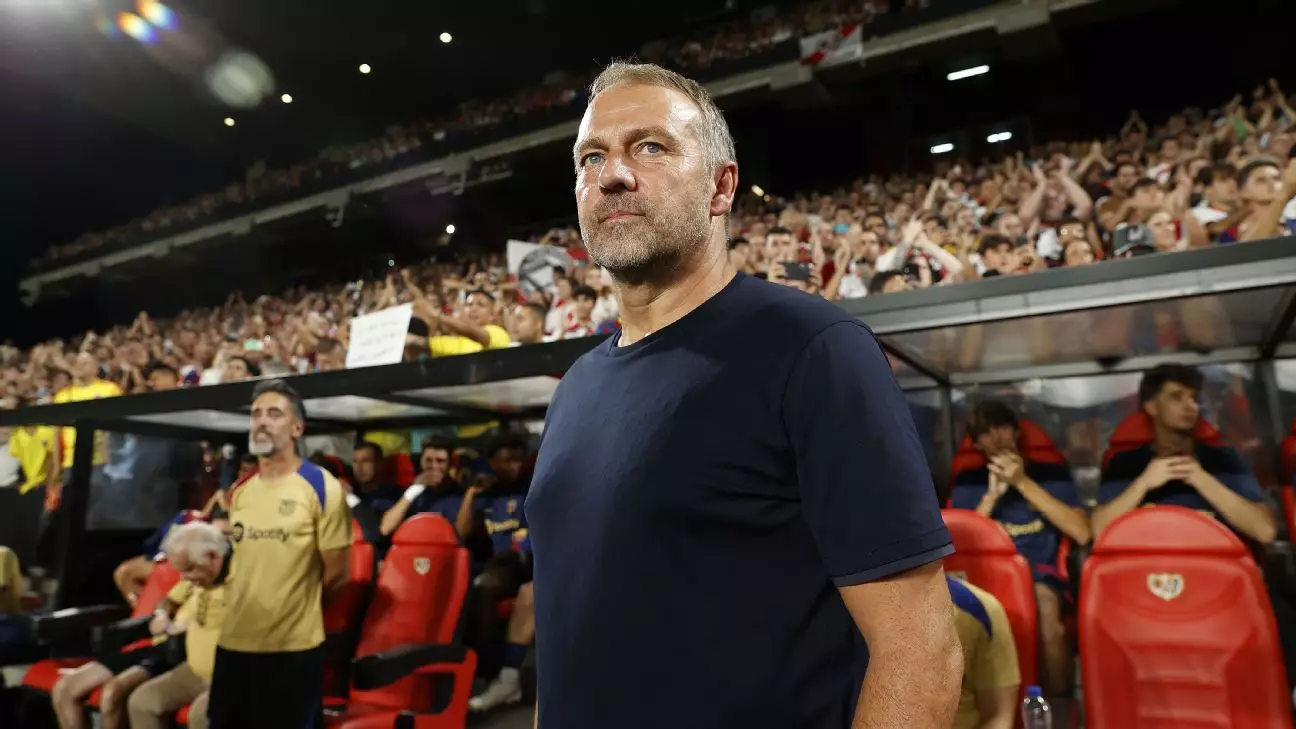The world of football is often characterized by rapid highs and lows, and for Barcelona, the recent encounter at Osasuna became a key moment in the tenure of head coach Hansi Flick. The coach openly accepted accountability for the team’s disappointing 4-2 defeat, a result that ended their impressive seven-match winning streak in La Liga. This article analyzes Flick’s reflections on the match, the ramifications of squad rotation, and the journey ahead for Barcelona as they continue to adapt and evolve under his leadership.
In modern football, managing player workloads is a critical challenge, especially when the schedule is packed with fixtures. Before the match against Osasuna, Flick made a bold decision to rest five players, including the promising young talent Lamine Yamal and the influential Raphinha. This strategy stemmed from a desire to preserve player fitness over the demanding run of matches. However, the defeat brought the wisdom of such a decision into question.
Flick defended his choice by pointing out the fatigue accumulated by players after a grueling series of encounters. “We had so many matches, and a lot of players had played so many minutes,” he stated following the loss. He emphasized that maintaining player fitness and managing injuries was a significant concern. The loss, therefore, was not merely a result of poor performance but was interwoven with the complexities of team management in pro football.
After the game, Flick’s post-match comments were marked by a notable sense of responsibility. He reinforced that “if you want to blame someone for this defeat, blame me,” showcasing his willingness to accept the pressures of leadership. This admission not only points to the stresses managers face but also indicates a level of confidence in their broader project. Flick remains optimistic about the team’s potential, expressing hope that the players would recover and perform strongly in their upcoming fixtures against Young Boys in the Champions League and Alavés in La Liga.
Through the lens of leadership, Flick’s comments underscore the importance of maintaining morale and trust within the squad. Acknowledging defeat while simultaneously projecting confidence can help players rebound, learn from experiences, and harness their collective strengths in future matches.
The match against Osasuna was illustrative of the tactical trials teams face as they juggle player rotations and performance expectations. Barcelona went down early to Ante Budimir’s header and struggled to regain momentum thereafter. Despite Pau Víctor’s goal boosting their spirits, the concession of a penalty highlighted a vulnerability within the defensive structure resulting from the changes Flick made to the lineup.
The youthfulness of the squad was both a blessing and a challenge. Inserting younger players, such as Sergi Domínguez, who gave away the penalty, showed Flick’s commitment to building for the future but also revealed the lapse in experience that could be pivotal in tightly contested matches. As Barcelona seeks to balance squad depth with immediate performance needs, finding the right blend of youth and experience is essential.
The impact of injuries on Flick’s roster cannot be overstated. With key players like Dani Olmo, Frenkie de Jong, Gavi, and Fermín López slated to return after the international break, Barcelona has the potential to enhance both squad depth and overall team performance markedly. The upcoming fixtures represent not just a chance to rebound from the setback against Osasuna but also an opportunity to leverage the impending influx of talent to forge a resilient and adaptable team.
Flick’s comments about the challenges of fielding a complete squad point to a necessary evolution in both strategy and lineup selection. As these key players re-enter the fray, the coach must make tactical adjustments that integrate fresh legs while capitalizing on the momentum gained from previous successes.
Barcelona’s setback at Osasuna is a stark reminder of the complications managers face in balancing immediate results with long-term team health and performance. Hansi Flick’s acceptance of responsibility, coupled with a forward-looking mindset, provides a foundation from which the team can rebuild and learn. Despite setbacks, the overarching goal remains: to harness potential and strive for success in both domestic and European competitions. The resiliency displayed in the wake of adversity will shape the narrative of Barcelona’s season as they continue to navigate the complexities of top-tier football under Hansi Flick’s stewardship.

